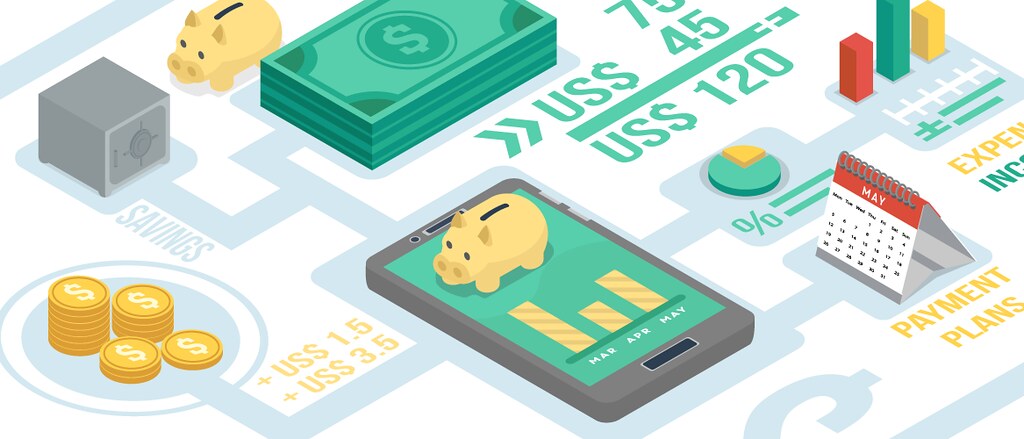Howdy there, fellow ethical spenders! I’m Susan Thompson, your trusty guide to all things ethical in the world of finances. Over the past four years, we’ve delved into the exciting world of ethical spendings, explored the intricacies of sustainable investments, and championed responsible financial choices. Today, we’re going to explore the marvelous realm of Ethical FinTech Solutions. Yes, you heard me right – even the digital realm can be a bastion of ethical goodness. So, buckle up, because we’re about to embark on a journey into the world of ethical FinTech!
The FinTech Revolution
FinTech, short for Financial Technology, has taken the financial world by storm. From mobile banking apps to robo-advisors, FinTech has made managing our money more convenient than ever before. However, with great power comes great responsibility, and there have been concerns about the ethical implications of some FinTech practices.
But fear not, my dear ethical spenders, for there’s a brighter side to this digital coin. Ethical FinTech solutions are here to ensure that you can manage your money efficiently while staying true to your values.

The Ethical FinTech Landscape
Let’s start by understanding what makes a FinTech solution ethical. Essentially, it boils down to two key principles: transparency and social responsibility.
Transparency
Transparency is the cornerstone of ethical FinTech. It means that the company is open and honest about its practices, fees, and how it handles your data. When dealing with your money, you want to know where it’s going and how it’s being used.
Example 1: Aspiration is a prime example of a FinTech company that takes transparency seriously. They offer a “Pay What Is Fair” model for their services, allowing customers to choose how much they want to pay in fees. Plus, they are committed to not using your deposits to fund fossil fuel projects, which is music to the ears of environmentally-conscious investors.
Social Responsibility
Social responsibility means that a FinTech company considers the impact of its actions on society and the environment. They strive to do good while making a profit, rather than pursuing profit at any cost.
Example 2: Tala is a FinTech company that provides microloans to people in emerging markets, often without access to traditional banking. Their mission is to promote financial inclusion and lift people out of poverty. Now, that’s a FinTech solution that’s making the world a better place!
Ethical FinTech Categories
Now that we’ve got the basics down, let’s dive into some categories of ethical FinTech solutions.
Sustainable Investing

Ethical investors, rejoice! Sustainable investing platforms like Wealthsimple and Ellevest allow you to put your money into portfolios that align with your values. Whether you’re passionate about clean energy or gender equality, there’s an investment option for you.
Example 3: Swell Investing offers thematic portfolios focused on issues like renewable energy, clean water, and disease eradication. So, while your money grows, you’re also contributing to positive change in the world.
Digital Banking
Digital banks, or neobanks, are all the rage these days. They offer a range of banking services without the need for a physical branch. The good news is that some of them are pretty ethical.
Example 4: Chime doesn’t charge overdraft fees, foreign transaction fees, or monthly maintenance fees. They also offer a “Save When You Get Paid” feature that automatically saves a percentage of your paycheck. It’s like having a financial guardian angel!
Responsible Crowdfunding
Crowdfunding platforms have democratized the process of raising funds for projects and causes. Ethical crowdfunding platforms take it a step further by focusing on projects that have a positive impact on society or the environment.
Example 5: Kiva connects lenders with borrowers in need of microloans. You can support entrepreneurs worldwide, helping them build a better future for themselves and their communities. It’s like being a modern-day philanthropist from the comfort of your own home.
Privacy-Centric FinTech
With concerns about data breaches and privacy violations on the rise, privacy-centric FinTech companies have emerged to protect your financial data.
Example 6: ProtonMail offers an encrypted email service that can be used for secure communication related to your financial matters. It’s like sending your financial information through an impenetrable fortress.
How to Choose Ethical FinTech Solutions
Now that you know what to look for, here are some tips on choosing the right ethical FinTech solutions for you:
Define Your Values: Identify the causes and values that matter most to you. Are you passionate about the environment, social justice, or financial inclusion? Knowing your values will help you find FinTech solutions that align with them.
Read Reviews: Check out user reviews and independent evaluations of FinTech companies. Don’t just take their marketing materials at face value – dig deeper to ensure they walk the ethical talk.
Compare Fees: While ethical FinTech solutions may be aligned with your values, you still want to make sure their fees are competitive and reasonable.
Test the App: Many FinTech companies offer free trials or have user-friendly apps that allow you to explore their services. Take advantage of this to see if the platform suits your needs.
Ask Questions: Don’t hesitate to reach out to customer support with any questions or concerns you may have. A responsive and helpful support team is a good sign.
Final Thoughts
Ethical FinTech solutions are paving the way for a brighter financial future, where managing your money doesn’t mean compromising your values. Whether you’re investing for a sustainable future or just looking for a convenient, ethical way to bank, there’s a FinTech solution out there for you.
Remember, my fellow ethical spenders, that your financial choices can be a force for good in the world. So, go forth, explore, and let your money make a positive impact. And until next time, keep those wallets full and those hearts even fuller!

































